This MP District Rewards Families with Daughters, Thanks To One IAS Officer’s Vision
Recently, upon purchasing some spices from a local shop, Shikha Dubey was pleasantly surprised when she received additional food items — milk powder, a mix of dry fruits, and tea blends — all free of charge.
She soon learnt that such offers and gifts are specifically being provided to parents with only daughters!
All her life, the 40-year-old had been taunted for having birthed only a daughter. “Within my family, there were often comments about how having a son would have been more beneficial for us. However, I never felt the need for a son; my daughter is my entire world,” she tells The Better India.
“She cares for me in ways I believe a son might not. Despite my family’s wishes for a son, my daughter is proving them all wrong with her dedication and love. She is currently attending college in Indore, and now those same people who once believed a son was necessary are beginning to see just how capable a daughter can be. I take immense pride in being a parent to my daughter,” she says with a proud smile.
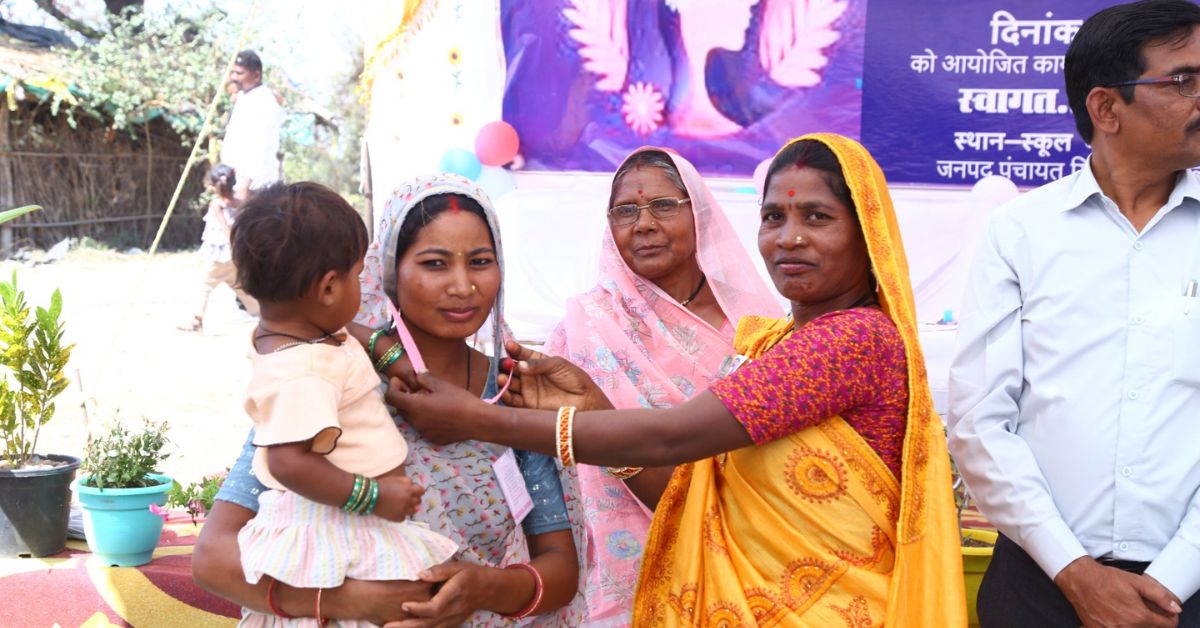 In just a few months, over 2,000 families have embraced the Kirti Card.
In just a few months, over 2,000 families have embraced the Kirti Card.
Shikha hails from the Eimarni tehsil of MP’s Harda district, where recently, former District Collector Aditya Singh, IAS, identified families with only daughters and awarded them Kirti Cards — symbols of honour that came with tangible benefits. (Kirti means honour or glory in Hindi, a name chosen to symbolise the dignity and pride in raising daughters.)
The initiative is designed to celebrate and incentivise families with only female children, inverting traditional biases and fostering a culture of equality.
Rich in corps, poor in equality?
Nestled along the lush banks of the Narmada River, Harda district in Madhya Pradesh pulses with life and prosperity. Often referred to as the ‘Punjab of Madhya Pradesh’, this vibrant region boasts sprawling fields of wheat and soybeans that paint the landscape in hues of green and gold.
However, beneath this prosperous surface lies an unsettling imbalance — a skewed sex ratio, lingering malnutrition, and health challenges that belie the district’s economic success.
When Aditya Singh, a 2014 batch IAS officer, took charge as the District Collector last year, he knew the numbers told a story that demanded action.
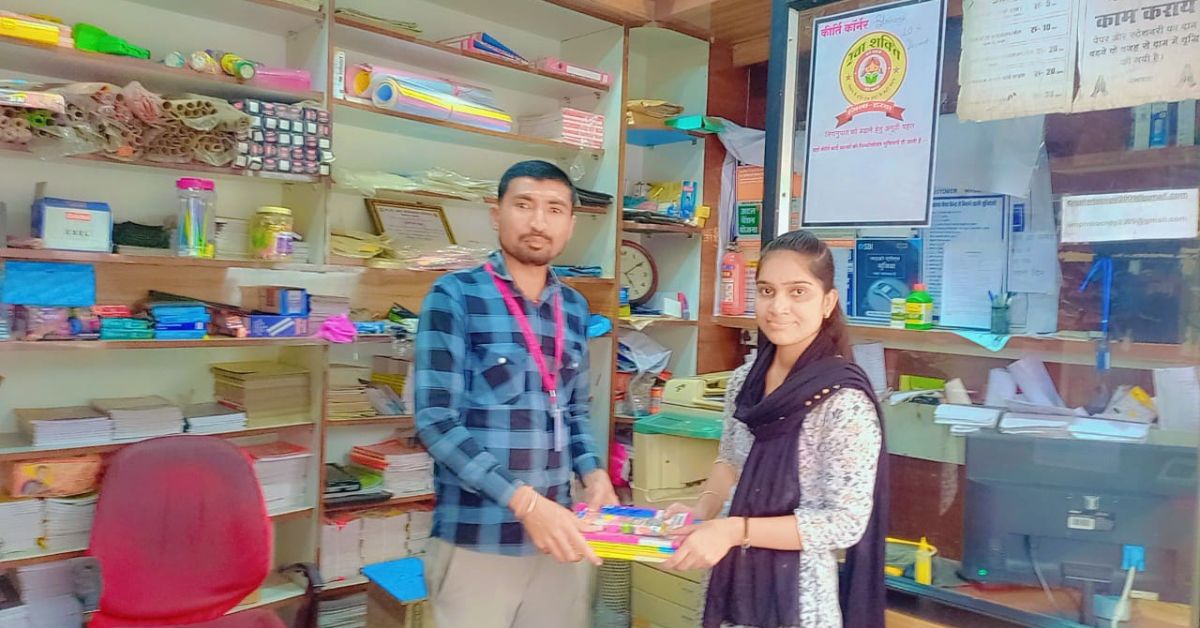 Aditya’s team issued Kirti Cards at an array of participating private institutions — from schools and hotels to coaching centres and more.
Aditya’s team issued Kirti Cards at an array of participating private institutions — from schools and hotels to coaching centres and more.
Despite Harda’s wealth and resources, he found a troubling trend: 894 women for every 1,000 men, compared to a state average of 950.
Working closely with the Women and Child Development Department, he identified villages where these disparities ran deep. A comprehensive door-to-door survey revealed the pervasive preference for male children.
“Harda has a per capita income twice the state average. But despite the district’s economic resources, we discovered underlying societal attitudes that favoured male children over females – a bias perpetuated by a strong agriculture-driven society. While people cannot show these biases openly because of strict laws, we observed these differences in some villages with a low sex ratio,” says Aditya.
Breaking barriers, building equality
For Aditya, this campaign isn’t just another administrative mission; it’s deeply personal. He shares that his mother was the only daughter in her family and cared for her own mother with unwavering devotion. “Growing up in a family where women played pivotal roles reinforced my commitment to see women not as burdens, but as pillars of strength,” he says.
That belief shaped the ethos of the ‘Rewa Shakti Abhiyan’ — a district-wide campaign that Aditya launched to turn the tide against ingrained gender bias. Rooted in pride and empowerment, and named after the river that breathes life into Harda, the campaign has the Kirti Card initiative at its heart, designed to champion families who raise daughters with pride.
By identifying families with only girl children, Aditya’s team issued these special cards at an array of participating private institutions — from schools and hotels to coaching centres and more.
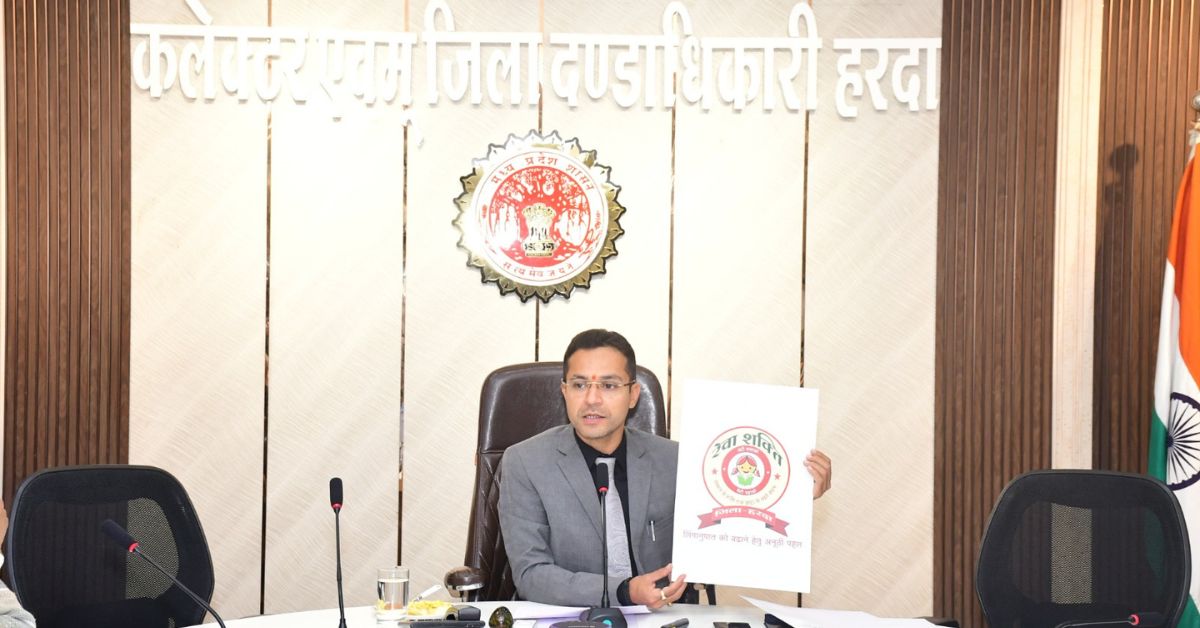 Launched on 24 January 2025 — National Girl Child Day — the project marks the beginning of a transformative journey for Harda.
Launched on 24 January 2025 — National Girl Child Day — the project marks the beginning of a transformative journey for Harda.
The exclusive perks, for instance, include priority access to government services to ease bureaucratic processes. “We have set up dedicated Kirti corners in government offices, so that they can skip queues for quick resolution of their issues. These specialised desks enable families to submit applications for welfare schemes. Here, they can meet officers from the panchayat level to the Superintendent of Police, and even the Collector. For us, it may sound trivial, but it brings a sense of achievement for the local people,” Aditya explains.
In addition to this, the Kirti Card holders receive healthcare benefits. “In hospitals, they receive prioritised OPD services, ensuring timely medical care without hindering others,” he adds.
Local businesses, hotels, restaurants, and educational institutions have also rallied to offer discounts and special benefits to families raising daughters, thus reinforcing a community-driven approach.
All these efforts — from discounted fares to free coaching — are more than typical incentives; they are a way to shift mindsets.
Aditya explains that they also offer a 25 percent fare reduction on buses. “Schools and coaching centres, including renowned institutions such as Physics Wallah, have committed to offering free coaching for girls. Even hoteliers in Pachmarhi (a nearby hill station) have pledged their support for the initiative.”
The IAS officer adds, “By offering such benefits, we aimed to elevate the societal status of daughters and instil a sense of pride among families.”
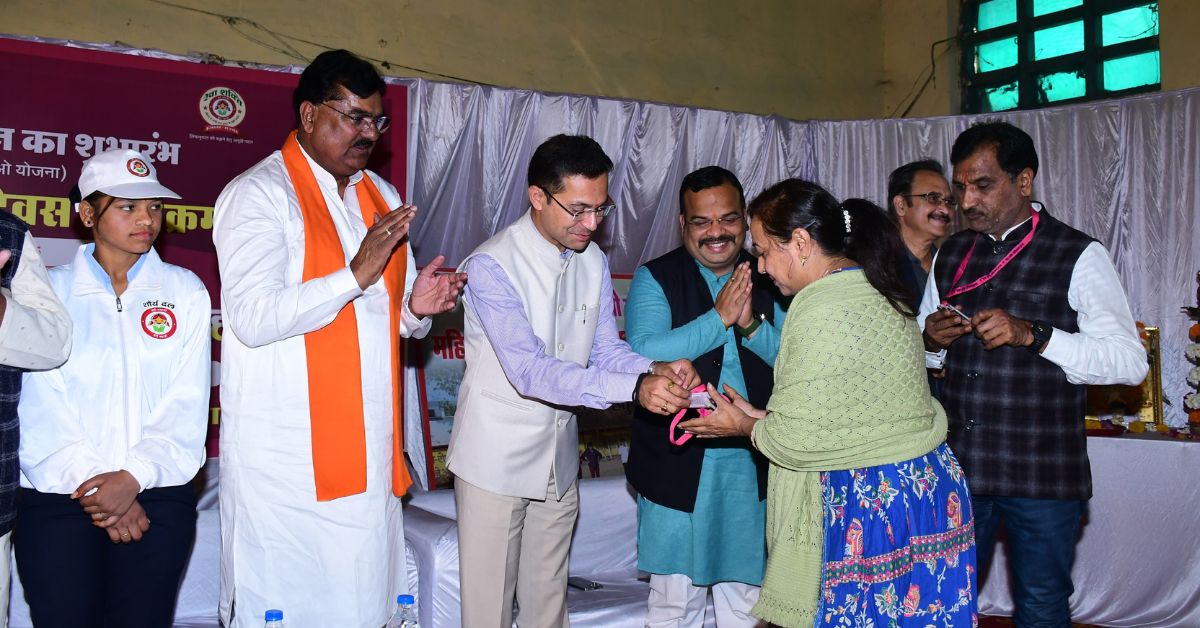 The initiative is designed to celebrate and incentivise families with only female children.
The initiative is designed to celebrate and incentivise families with only female children.
To implement the initiative, the district administration has partnered with local shops, businesses, resorts, and more such establishments, collectively called ‘Rewa Mitra’ institutions.
“The government cannot achieve social transformation alone. This must be a citizen-driven movement, and the response has been overwhelmingly positive so far,” remarks Aditya.
Launched on 24 January 2025 — National Girl Child Day — the project marks the beginning of a transformative journey for Harda. The change, although nascent, is already visible. In just a few months, over 2,000 families have embraced the Kirti Card, and about 300 private institutions have joined the initiative.
Aditya admits that its long-term impact on demographics will take time, but the immediate shifts in perception give him hope. “Parents who once feared societal ridicule for not having sons now wear their Kirti Cards with pride, illustrating the deep psychological shift underway,” he smiles.
Respect begins at home
He also reflects on the broader vision of Beti Bachao, Beti Padhao, emphasising that what we truly need is holistic equality — social, economic, and educational.
Through the ripple effects of initiatives like the Kirti Cards, Aditya is helping Harda harness the strength of its daughters, crafting a future defined by equal opportunity and shared prosperity.
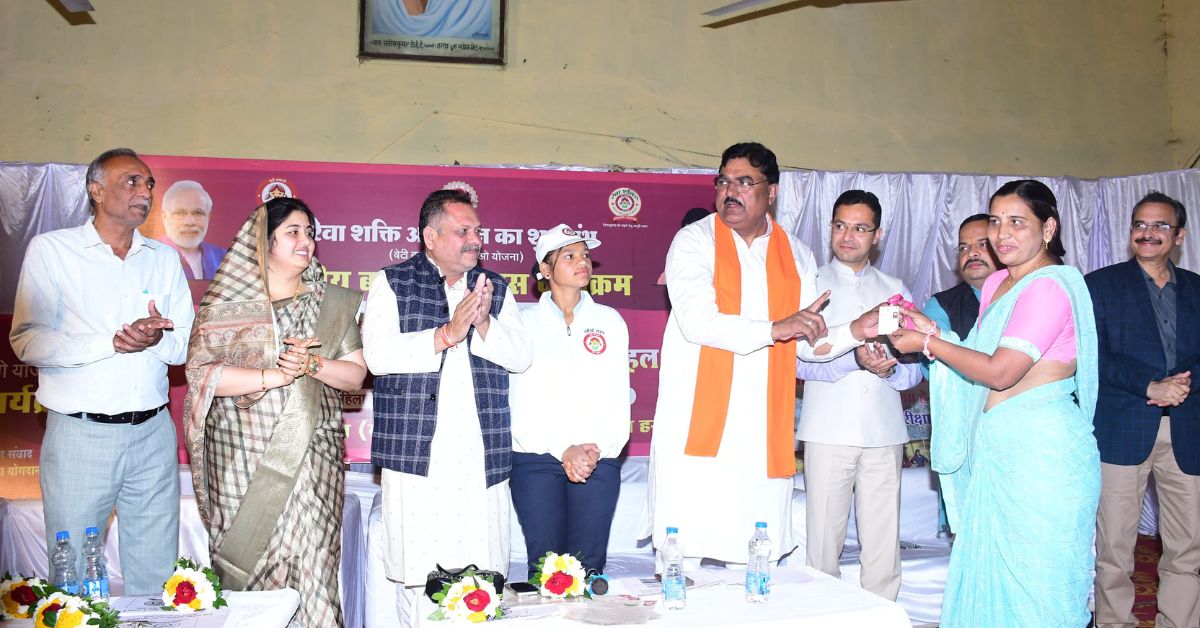 Kirti Cards aim to promote gender equality and societal change.
Kirti Cards aim to promote gender equality and societal change.
“Initially, we noticed scepticism among families, with some questioning the notion of having male children as a sin. We worked tirelessly to keep the campaign’s tone inclusive, focusing on celebration rather than division,” he says.
Aditya believes that with proper nourishment and encouragement, each child, regardless of gender, can reach their fullest potential. And in Harda, families are slowly beginning to believe that too.
Shikha, a proud Kirti Card holder, urges that initiatives like these should be expanded beyond Harda to encompass all of Madhya Pradesh and, eventually, the entire country. “This could help address and improve the imbalance in the sex ratio of girl children throughout India,” she adds.
The narrative of female resilience and responsibility that Aditya grew up experiencing continues to fuel his mission to reshape perceptions for future generations.
“The Kirti Cards aren’t just ID cards; they are symbols of progress and pride. They challenge ingrained stereotypes and strive to create an environment where girls are seen as assets, not liabilities,” shares the IAS officer.
Edited by Khushi Arora; All images courtesy Sanjay Tripathi, District Programme Officer, Women and Child Development Department, Harda
News